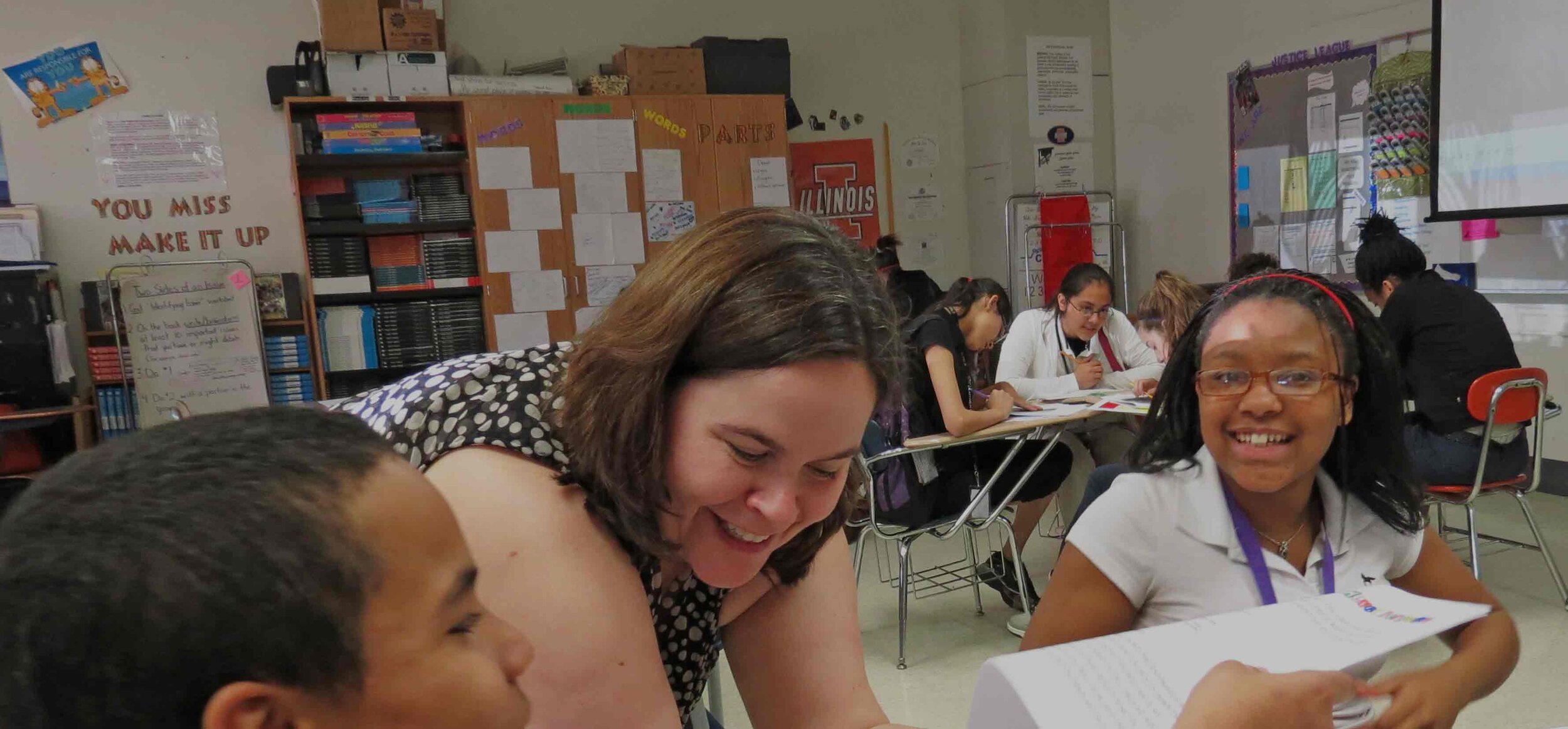
Instruction
Classroom-tested instructional practices, backed by research, that get students to take an active role in their own learning. When you gain insights into improving your instructional practices, you deepen learning and directly influence student outcomes.
Transform the way you address students’ needs with instructional strategies and tools from Engaging Learners. Our solutions boost your teaching confidence, enabling you to improve your practice and create an active learning environment that fosters student growth.
Free Resource
Using puzzle pieces as manipulatives helps students learn to use apostrophes correctly. Download this sample Action Contractions lesson from the book, Hands-On Grammar: Multimodal Grammar and Language Mini Lessons and see how easy it is to incorporate kinesthetic models and Gardner’s theory of multiple intelligences into your classroom.
Workshops
Literacy & Learning Centers™
The Intersection of Content Knowledge and Literacy Skills
Dr. Katie McKnight has a 100% success rate in achieving academic gains with her unique, centers-based approach. Elementary schools have long used learning centers (also known as “rotations”) but middle and high school teachers have unique challenges. So Katie worked with teachers all over the country to develop collaborative learning centers designed specifically for grade 4-12 learners. In this session readers can explore the research that prompted the creation of the LLC model for big kids and learn how to start using it in their own classrooms.
Learn about the four foundational centers that are integral to the model. Find out how to set up additional centers in order to customize the LLC model for any content-area classroom. Learn to create developmentally appropriate tasks that automatically align instruction to standards/skills-based assessment, increase student engagement, and allow you to cover more content and skill-development in less time. Avoid discipline problems with self-directed activities that provide the independence students crave with the guidance they need.
Resources, teacher tips, and sample book lists are included.
Format: Half Day session or Full Day session
Suggested Companion Books: Literacy & Learning Centers for the Big Kids, and Literacy & Learning Centers: Content Area and Disciplinary Literacy Tools for Grades 4-12.
Hands on Grammar and Vocabulary
Draw your students into the power of language and help them make the connection between abstract grammatical concepts, academic vocabulary, and concrete writing experiences. Dr. Katie McKnight, renowned author, speaker, and adolescent literacy specialist, shares classroom lessons that actively involve multiple intelligences and help students internalize concepts far more readily than traditional worksheets.
Format: 60-90-120 minute presentation, Half Day session, or Full Day session
Suggested Companion Book: Hands on Grammar (Second Edition)
Evidence-Based Writing
Short, Short, BIG! the all-in-one toolkit for teaching evidence-based or persuasive writing, was designed to take the ambiguity out of writing instruction. This session provides teachers the opportunity to hone their instructional knowledge and skillset to create more effective writers, readers, and critical thinkers.
Format: Half Day session or Full Day session
Companion Materials: Short, Short, BIG! toolkit
Yes, Differentiating Text CAN Be a Good Practice
We teach diverse readers. In this session, we will focus on how to differentiate reading (in all subjects) for grades K-12. How do you select texts based on choice and complexity to motivate and engage students? Example differentiated book lists will be shared with participants.
Format: 60-120 minute session
What Created the Knowledge Gap (and what we can do about it)
You know the reality. Over 65% of our students are not reading on level. This is a staggering statistic, especially in light of the COVID-19 pandemic. What practices can educators leverage to close the gap? What does the research really indicate about grade-level text and differentiated reading? In this session, we will burrow into these questions, and you’ll emerge with some concrete answers and vision to create engaged and proficient readers in all disciplines.
Format: Keynote, 60-90 minute session
Promoting Equity and Social Justice in the Literacy Classroom
Our classrooms are filled with dynamic students with diverse learning needs. In this session, learn how to promote equity and social justice in classrooms while developing literacy skills.
Format: 60-120 minute session
Designed by teachers and educational experts, our strategic solutions help you evolve your approach to instruction, introducing new ways to unpack content that elevate student learning and boost student achievement. Discover how our professional learning strengthens your knowledge and skills, equipping you with classroom-tested tools and techniques to differentiate instruction, promote critical thinking and assess learning.
Engaging Learners supports you with classroom-tested instructional practices, backed by research, that get students to take an active role in their own learning. Our interactive activities address the needs of diverse learners, appealing to social-emotional needs, driving skill development and energizing your classroom.
Whether you prefer to take courses online, learn from a book, or want live access to our experts, Engaging Learners has a range of options to satisfy your instructional needs. We make sure you can take new ideas and transfer them to your classroom. When you gain insights into improving your instructional practices, you deepen learning and directly influence student outcomes.
Engaging Learners Academy Companion Courses
Advancing Differentiation
Thinking and Learning for the 21st Century (15 hours)
Literacy & Learning Centers
Building Literacy Skills and Content Knowledge (15 hours)
Yes, Differentiating Text is a Good Instructional Practice
(2 hours)
Words, Words, Words: Grammar and Vocabulary Strategies that Engage!
(2 hours)
Four Ways to Create Effective E-Learning in Grades K-12
(2 hours)








